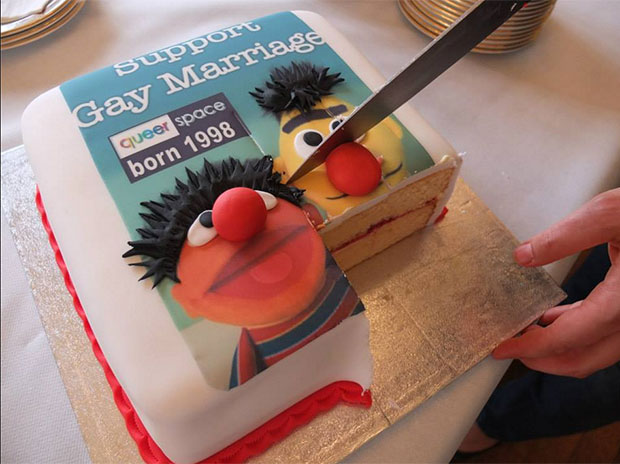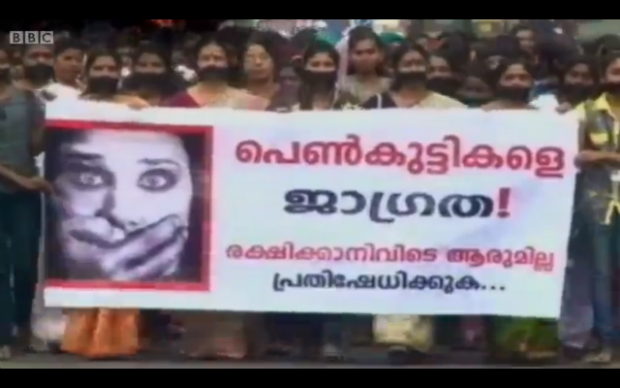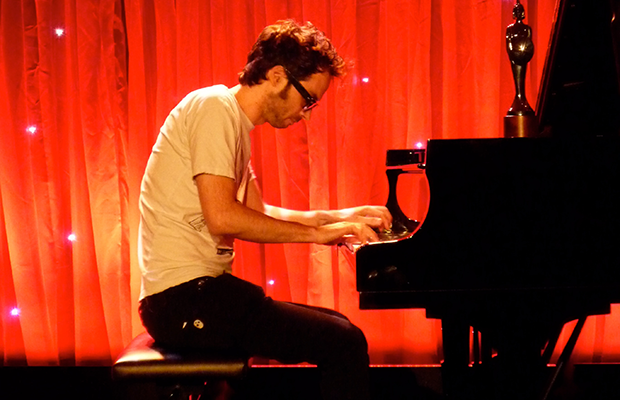21 May 2015 | mobile, News and features, United Kingdom
In the dark times, will there also be singing?
Yes, there will be singing.
About the dark times.
– Bertolt Brecht
In an address to the first conference convened by the International Writers Center, held in St Louis in 1996, American poet Carolyn Forché described the ordeal of Hungarian poet Miklós Radnóti, who was forced into slave labour during World War II.
Radnoti managed to secure a small notebook in which he recorded his experiences in 10 poems written before he was executed.
A coroner’s report written when his body was exhumed after the war recorded:
“A visiting card with the name Dr. Miklós Radnóti printed on it. An ID card stating the mother’s name as Ilona Grosz. Father’s name illegible. Born in Budapest, May 5, 1909. Cause of death: shot in the nape. In the back pocket of the trousers a small notebook was found soaked in the fluids of the body and blackened by wet earth. This was cleaned and dried in the sun.”
Forché noted that the story of Radnoti did not end in a mass grave. Rather, his work, like that of others survived as “evidence of the dark times in which they lived”. This is what Forché calls “the poetry of witness”, work forged in instances and circumstances when the “personal” and “political” cannot be kept separate.
I was reminded of Forché and her concept of witness when I read the reactions to the court decision that would finally allow pianist James Rhodes to publish his memoir, Instrumental.
Rhodes’s candid book detailed his sexual abuse at the hands of a teacher. He had been raped, leaving him with spinal damage. An extract from the book published on the Guardian website describes the horror and the aftermath:
“I went, literally overnight, from a dancing, spinning, gigglingly alive kid who was enjoying the safety and adventure of a new school, to a walled-off, cement-shoed, lights-out automaton. It was immediate and shocking, like happily walking down a sunny path and suddenly having a trapdoor open and dump you into a freezing cold lake.
“You want to know how to rip the child out of a child? Fuck him. Fuck him repeatedly. Hit him. Hold him down and shove things inside him. Tell him things about himself that can only be true in the youngest of minds before logic and reason are fully formed and they will take hold of him and become an integral, unquestioned part of his being.”
The book fell victim to an injunction preventing publication after Rhodes’s ex-wife insisted that the account of his father’s abuse would be emotionally damaging to their son.
In overturning the injunction, presiding judge Lord Toulson noted: “There is every justification for the publication. A person who has suffered in the way the appellant has suffered, and has struggled to cope with the consequences of his suffering in the way that he has struggled, has the right to tell the world about it. And there is the corresponding public interest in others being able to listen to his life story in all its searing detail.”
The reaction to the news was overwhelmingly one of relief: both for the author but seemingly others too. Stephen Fry tweeted that he was “stupidly teary” about the judgment, which he saw as a vindication for Rhodes.
Vindication seems an odd concept to summon, as no-one seemed to be questioning the veracity of Rhodes’s story. But I think I understand what Fry means.
Rhodes’s case goes beyond the usual reasons we give for reporting child abuse: that it may help others to come forward, or that it may help snare past and future perpretators. While these are valid reasons, they are not the thing in itself. As the judge pointed out, Rhodes has a right to tell his own story and the denial of that right is a further abuse of a man who has already suffered. To deny the story is to inflict further harm.
In the Ten Stages of Genocide, developed by Gregrory Stanton of Genocide Watch (and explored in a new play, No Feedback, opening this week in London), denial is listed not as the aftermath of genocide, but as an intrinsic part of it.
“Denial is the final stage that lasts throughout and always follows a genocide. It is among the surest indicators of further genocidal massacres. The perpetrators of genocide dig up the mass graves, burn the bodies, try to cover up the evidence and intimidate the witnesses. They deny that they committed any crimes, and often blame what happened on the victims. They block investigations of the crimes…”
Thus insult goes hand in hand with injury. This is far beyond the idea of free speech, of the ability to bear witness, as a utilitarian idea: the right to speak is essential, like the right to eat. Denied communication of our experience, we, creatures who rely on social interaction, are starved (Forché describes “the social”, the place where one bears witness, as “a place of resistance and struggle, where books are published, poems read, and protest disseminated. It is the sphere in which claims against the political order are made in the name of justice.”)
The effect of denial imposed on individuals and societies can be seen everywhere from Rhodes continued anguish to Armenia’s entry in this year’s Eurovision Song Contest, it’s title Don’t Deny a pointed reminder on the centenary of that nation’s still-disputed trauma.
Sometimes, in free expression arguments, people will argue not that there is a right to speak, but no right to be listened to: this may be true, but there is a visceral need to be heard, to have our stories acknowledged. For it is our stories that make us. In that sense, the publication of James Rhodes’s memoir, after the attempts to deny him his chance to tell his tale, marks his vindication not as a pianist or a writer, but as a human being.
This column was posted on 21 May 2015 at indexoncensorship.org
14 May 2015 | mobile, News and features, United Kingdom
It has been hailed as the damp squib to end damp squibs. The let down of let downs. The mother, the pearl of non-stories. Prince Charles’s “black spider” letters to various government ministers including the prime minister Tony Blair over eight months between 2004 and 2005 have elicited barely an OMG! or a WTF?, but many, many, mehs.
“Where’s the crazy stuff about homeopathy?”, we mumble. “Isn’t there supposed to be some stuff about talking to vegetables, or converting to Kaballah? Aliens? Surely some crop circles?”
Nothing. Or at least nothing worth shaking a divining rod at. One mention of herbal medicines. A hat tip to the Patagonian toothfish and the “poor old albatross”. Lots and lots of impressive detail about agricultural policy.
If anything, having scanned the letters I found myself thinking more highly of Prince Charles than previously. He clearly knows his stuff (or at least has had the good sense to employ someone who knows their stuff) and is genuinely concerned for the farming and fishing sectors.
That is not to say I am comfortable with the existence of these letters. I am a dyed-in-the-wool, though realistic, republican. That is to say, I sincerely disagree with monarchy in any form, but realise there’s not much point in going on about it in the UK. Most people seem reasonably happy with the archaic, arcane set up of the British monarchy. They’re not doing much harm, really, and doesn’t the Duchess of Cambridge have lovely hair? And none of it really matters.
Except that it does matter. The weirdness of the entire set up was exposed after the birth of Princess Charlotte in April. Royal correspondents openly spoke of her assumed lifelong role as second fiddle to her brother, George, who will one day be king.
The BBC did that thing where it reminds you that it is a state broadcaster, informing subjects about how the newborn had brought joy to the entire nation. I am not yet sufficiently misanthropic to be displeased by the birth of a child, but the whole thing had the feeling of the celebration of a successfully completed pagan ritual.
I sometimes wonder if it’s different if you were raised with this stuff: if the British are immune to the oddness of it all.
Times journalist Hugo Rifkind, a writer I admire and generally believe to be right about pretty much everything, confused me with a column after the Supreme Court’s decision that the letters should be published in which he suggested that those who wanted the letters published were guilty of taking the prince too seriously: “[The letters are] the late-night rages of Mr Angry of Highgrove,” Rifkind wrote. “They’re the green ink letters to the press. In a sane and sensible nation, they wouldn’t matter at all.”
The problem is that this isn’t a sane and sensible nation. It is a nation where, purely by birth, Charles has a constitutional role to play. In a republic, the adult first-born of a president could sent whatever letters they wanted, and we’d leave them to it. In a monarchy, you cannot just be the child of a head of state: if that role depends on lineage, then it follows that Charles, while not head of state himself, still has power. It is one thing for a head of state to have regular meetings with her prime minister, but another for her son to throw his weight around on specific policy issues, even if it is all relatively boring stuff. If the monarchy is essentially meaningless and impotent, then scrap it. If not, well, it scrapping is even more urgent.
The government must also take its share of the blame for the fiasco that led to a 10-year legal fight with The Guardian at an estimated cost of £400,000. Why such determination to block the publication of a few letters on farming? Why the panic?
One supposes that they worried not just about the monarchy (former Attorney General Dominic Grieve suggested that the release of the letters would hamper Charles’s future ability to govern), but also about the implications: freedom of information gone wild. If a newspaper can demand to see correspondence from the heir to the throne, where does it all end?
Tony Blair claimed that one of his biggest regrets in government was the introduction of the Freedom of Information Act, which he claimed hampered candid conversations at cabinet level. I have some sympathy with this viewpoint, but I think the benefit of FOI has outweighed any negatives.
But now, with the publication of these old letters, ministers fear they will lose control of the freedom of information process. Hence attempts to strengthen a blanket ministerial veto on freedom of information requests. This on top of the exemption to FOI for senior royals introduced in 2011, in response to the black spider case. It’s a regressive step in an age where we keep being told of the need for open government. But that’s the mess monarchy has got us in to.
We’re not even a week into the new government, and already alarm bells are ringing over freedom of speech (with the government’s extremism plans) and freedom of information. The next few months and years will see bitter wrangling between government and civil libertarians.
If only we knew someone who would be sure that his concerned letters to ministers would be given full attention.
This column was posted on 14 May 2015 at indexoncensorship.org
2 Apr 2015 | mobile, News and features, United Kingdom

QueerSpace Belfast / Facebook
Last Sunday, as Northern Ireland’s footballers prepared to play Finland in a European Championship qualifier, protesters gathered outside Windsor Park, the team’s Belfast home.
The assembled were members of the Free Presbyterian Church. They were angered by the fact that Northern Ireland were playing on a Sunday – the Sabbath – for the first time ever.
Reverend Raymond Robinson told the Press Association: “Our opposition is to the breaking of observance of the Lord’s day.
“We believe in the Sabbath being kept holy. It seems more and more that the football agenda is being driven by the television companies and not what God says, or what public opinion is.”
Commentator Newton Emerson was, like many, blase about the protest, tweeting “I think these people are harmless enough now to just count towards our wonderful diversity.”
Be that as it may, Christian fundamentalism still plays a huge role in public life in Northern Ireland. While the old demands for Biblical propriety may seem archaic, a new struggle has emerged over what many religious people in the country see as threats to their religious freedom and way of life. And a cake has become the latest flashpoint.
Asher’s bakery is a business run by a family known for its Christian beliefs. It is named after one of the Biblical Twelve Tribes of Israel. Last summer, the bakery was asked to provide a cake by Gareth Lee, a volunteer for LGBT group QueerSpace.
Lee had requested a cake decorated with a picture of Sesame Street’s Bert and Ernie and the slogan “Support Gay Marriage”.
The bakery initially accepted the order, before then informing Lee that it could not fulfil the deal. The case went to Northern Ireland’s Equality Commission, and, between the jigs and reels, is now in the hands of district judge Isobel Brownie, who will rule on Monday whether the Christian bakers engaged in unlawful discrimination by not delivering the pro-same sex marriage cake.
Meanwhile, the “gay cake” case has raised the spectre of a “conscience clause” in equality legislation in Northern Ireland.
The whole situation is, quite frankly, pitiful. One can preach it, validly, both ways: fundamentalist bigots out of touch with the modern world, and inflicting their bigotry on others, or God-fearing, humble folk sticking by their beliefs in the face of an onslaught they didn’t invite.
I can’t help feel sympathetic towards the McArthurs, the family who own the bakery. Karen McArthur told the court that she had initially accepted the order to avoid embarrassment. Colin McArthur said “On that day I didn’t make a clinical decision. I was examining my heart. I was wrestling it over in my heart and in my mind.” He was, apparently, “deeply troubled”. “We discussed how we could stand before God and bake a cake like this promoting a case like this…”
On the other hand, Gareth Lee said he was left feeling like a lesser person after he was told his order would not be fulfilled.
This shouldn’t be down to who was more upset or offended, but then, on what criteria can we judge it? I don’t think it’s necessarily true to say that Lee is entitled to have any message he wants put on any cake by any person. The prosecution, correctly, pointed out that the message was rejected because of the word “gay”. The defence lawyers suggested that a ruling against the McArthurs could lead to a situation where devout Muslims were legally obliged to decorate cakes with images of Muhammad. While “you wouldn’t say that about the Muslims” is a tedious argument, and one deployed increasingly often by Christians, it’s not, in this case, an entirely unreasonable position.
Hardline Christians see homosexuality as a (wrong) choice people make, or a psychological disorder. I recall watching the Reverend Willie McRea, an MP, once, being asked what support he would offer to a constituent who was a victim of homophobia. McRea replied that he would advise the young man not go down that route: basically, the best way to prevent homophobia is to stop being gay.
Meanwhile, Iris Robinson, wife of Democratic Unionist Party leader Peter Robinson, firmly believes that one can be counselled away from homosexuality.
These people are odd, certainly, but they are not fringe characters who can be dismissed as irrelevant to mainstream society in Northern Ireland.
And even if these views were not mainstream, that would not make the fundamentals of the case any different. But it does seem as if the Equality Commission is trying to drag a segment of Northern Irish society kicking and screaming into the secular world.
So who’s right? Who should win? Reader, I am about to break the columnist’s solemn covenant and admit: I don’t fully know. This is not as clear cut a case of discrimination as, say, barring a gay couple from a Bed and Breakfast: if the McArthurs had simply refused to sell a cake to Lee, that would be clear cut. But the cake was loaded, so to speak. Should this tricky case lead to a “conscience clause” in equality legislation, then one can imagine legitimisation of genuinely discriminatory practices.
At the same time, the McArthurs, are wrong, and one’s initial inclination is to side with the gay rights activist against the religious fundamentalists. But that’s the problem with defending freedom of conscience, (and its expression in freedom of speech). Everyone’s conscience is different.
Northern Ireland beat Finland 2-1, by the way. God’s clearly not very troubled by Sunday football.
This column was posted at indexoncensorship.org on April 2, 2015
12 Mar 2015 | India, News and features

A scene from the recently released documentary India’s Daughter (Image: BBC)
Whoever, intending to insult the modesty of any woman, utters any word, makes any sound or gesture, or exhibits any object, intending that such word or sound shall be heard, or that such gesture or object shall be seen, by such woman, or intrudes upon the privacy of such woman, shall be punished with simple imprisonment for a term which may extend to one year, or with fine, or with both.
– Section 509, Indian Penal Code
“The lady…or the girl, or woman, is more precious than a gem, a diamond. It is up to you how you want to keep that diamond in your hand.”
“Someone put his hand inside her and pulled out something long. It was her intestines.”
“My husband told me I was stupid because I went to protest and didn’t think about the consequences”
– From the documentary India’s Daughter
The rape and murder of Jyoti Singh on a bus in Delhi in December horrified much of India and the world. Rape is by definition an act of violence and violation, but the details of the brutality meted out by the gang of six attackers were particularly shocking. Singh was flown to a specialist hospital in Singapore, but eventually succumbed to her injuries.
The 23-year old had been returning home from a trip to the cinema to see The Life Of Pi with a male friend. Of course, in discussions of rape, it does not matter what the victim was doing; where the victim was going, or when, or why or with whom. But it was extraordinary how the “asking for it” argument was extended in the prosecution of Singh’s killers.
Watching the BBC’s stunning India’s Daughter documentary was a disturbing experience. Singh had not gone out alone, it was true. She had not gone to a bad part of town: but she had gone out in the evening, with a man who was not a family member. That was enough.
She was female in public. That was enough to justify the attack. One attacker spoke of taking “pleasure” where you found it: the rich man will pay for his “pleasure”, the poor man will attain it “through courage” — that is, rape.
India’s Daughter was a shocking, grim and important hour of television that laid the misogyny of society bare for all to see. All, that is, except Indian BBC viewers, who were denied the opportunity to watch the documentary.
The Indian government obtained an injunction barring the film being shown in the country after it emerged the filmmakers had interviewed one of the rapists, Mukesh Singh. The attacker was apparently unrepentant, repeating the mantra that a “good girl” would not have got herself into the situation where he raped her.
Indian Home Minister Rajnath Singh was appalled, saying: “It was noticed the documentary film depicts the comments of the convict which are highly derogatory and are an affront to the dignity of women.” The government invoked section 509 of the Indian penal code
So the film was banned from television. And then later from YouTube in India. An hour of forensic, challenging film-making, exploring violence against women and the attitudes around violence against women was censored in order to protect women’s honour — a woman’s “honour” being patriarchy’s most precious bauble. Indian society had failed to protect Jiyoti Singh in life and now, still, she, through her story, was to be denied access to public space in death. This is not how we “protect” women.
It is not the job of society to “protect” women: rather it is the job of society to ensure women’s rights. This is not done by keeping quiet, or suggesting that women keep quiet, but rather by talking loud and clear.
This week, Naz Shah, the Labour parliamentary candidate for Bradford West (where she will challenge George Galloway) became an instant star after an article about her life and what had driven her to seek political office. Her mother had been brutalised for years. Shah’s father had run off with another woman, and her mother sought shelter for herself and her children with another man. But she found torture, not sanctuary. After years of abuse, Shah’s mother killed her tormentor. Following campaigning work from the ever-inspirational Southall Black Sisters, Shah’s mother Zoora saw her jail sentence for the killing reduced from 20 years to 12.
Borrowing a phrase from Barack Obama, Shah described how her political ambition had stemmed from the “dream of her mother”. After Shah’s father left, it was the mother, the innocent party, who was left with the shame, the besmirched honour. While in prison, Zoora Shah told her daughter that she would like to see her become a prison governor, so that she could help women in incarceration. Shah’s impulse ever since, she says, was to be in a position to influence change.
But still she realises there will be people who are not interested in women taking up public spaces. “Already my ‘character’ has been attacked and desecrated through social media and trolling. The smear campaign that has started has been some of the most vicious and disgusting I have seen. But it does not scare me, will not change me, and it in fact fuels my passion for change more,” she wrote for Urban Echo.
The impulse to deny women the right to exist in public is not limited to the streets of Delhi, or Bradford. Think of the threats received by feminist Caroline Criado Perez, by MPs such as Stella Creasy and Luciana Berger. Think, even of the sexist chants against female officials and staff that have been highlighted by the Football Association recently. The language may be openly hateful, or couched in “protective” metaphor, but the message is always clear. The public sphere, public interaction, is for men, and at best, you are here by our permission. But the question is not, fundamentally, about who grants permission. As long as we accept that that power belong to one group and not the other, then we are accepting and entrenching inequality. The aspiration is to smash any idea of who is “allowed” to go where, who is allowed to wear what, who is allowed to say what. In an equal world, there can be no concept of “permission” being granted by one group to another. Instead, as Naz Shah wrote, there must be “real meaningful and honest conversations not only with ourselves but with our families, our communities and beyond”.
This column was posted on 12 March 2015 at indexoncensorship.org




